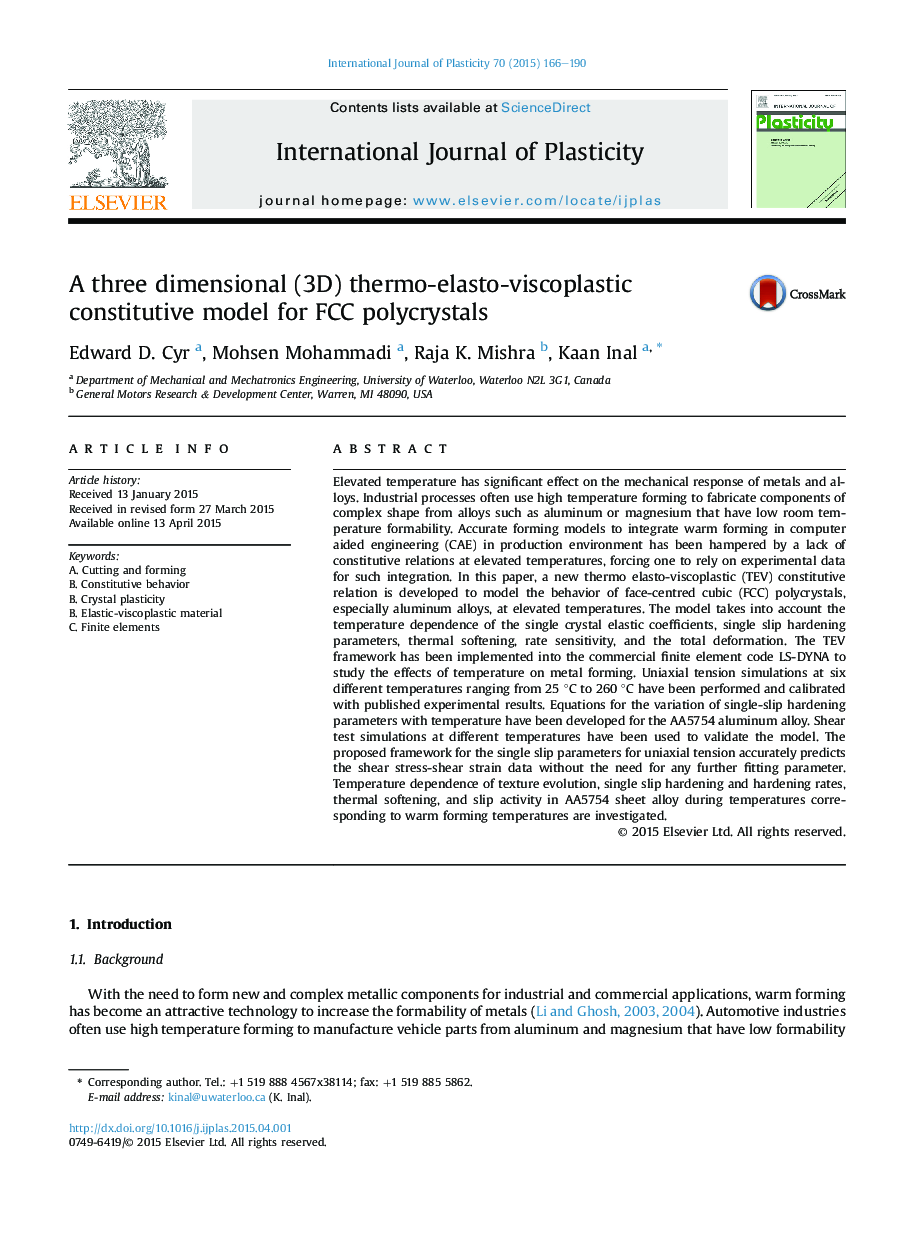| کد مقاله | کد نشریه | سال انتشار | مقاله انگلیسی | نسخه تمام متن |
|---|---|---|---|---|
| 786610 | 1465603 | 2015 | 25 صفحه PDF | دانلود رایگان |

• First 3D thermo-elasto-viscoplastic constitutive model for FCC polycrystals.
• Temperature dependence of all components of deformation is considered.
• The framework is implemented in LS-DYNA to study the effects of temperature.
• Equations for the variation of hardening parameters with temperature are developed.
• With one fitting parameter set, both uniaxial tension and shear data are predicted.
Elevated temperature has significant effect on the mechanical response of metals and alloys. Industrial processes often use high temperature forming to fabricate components of complex shape from alloys such as aluminum or magnesium that have low room temperature formability. Accurate forming models to integrate warm forming in computer aided engineering (CAE) in production environment has been hampered by a lack of constitutive relations at elevated temperatures, forcing one to rely on experimental data for such integration. In this paper, a new thermo elasto-viscoplastic (TEV) constitutive relation is developed to model the behavior of face-centred cubic (FCC) polycrystals, especially aluminum alloys, at elevated temperatures. The model takes into account the temperature dependence of the single crystal elastic coefficients, single slip hardening parameters, thermal softening, rate sensitivity, and the total deformation. The TEV framework has been implemented into the commercial finite element code LS-DYNA to study the effects of temperature on metal forming. Uniaxial tension simulations at six different temperatures ranging from 25 °C to 260 °C have been performed and calibrated with published experimental results. Equations for the variation of single-slip hardening parameters with temperature have been developed for the AA5754 aluminum alloy. Shear test simulations at different temperatures have been used to validate the model. The proposed framework for the single slip parameters for uniaxial tension accurately predicts the shear stress-shear strain data without the need for any further fitting parameter. Temperature dependence of texture evolution, single slip hardening and hardening rates, thermal softening, and slip activity in AA5754 sheet alloy during temperatures corresponding to warm forming temperatures are investigated.
Journal: International Journal of Plasticity - Volume 70, July 2015, Pages 166–190